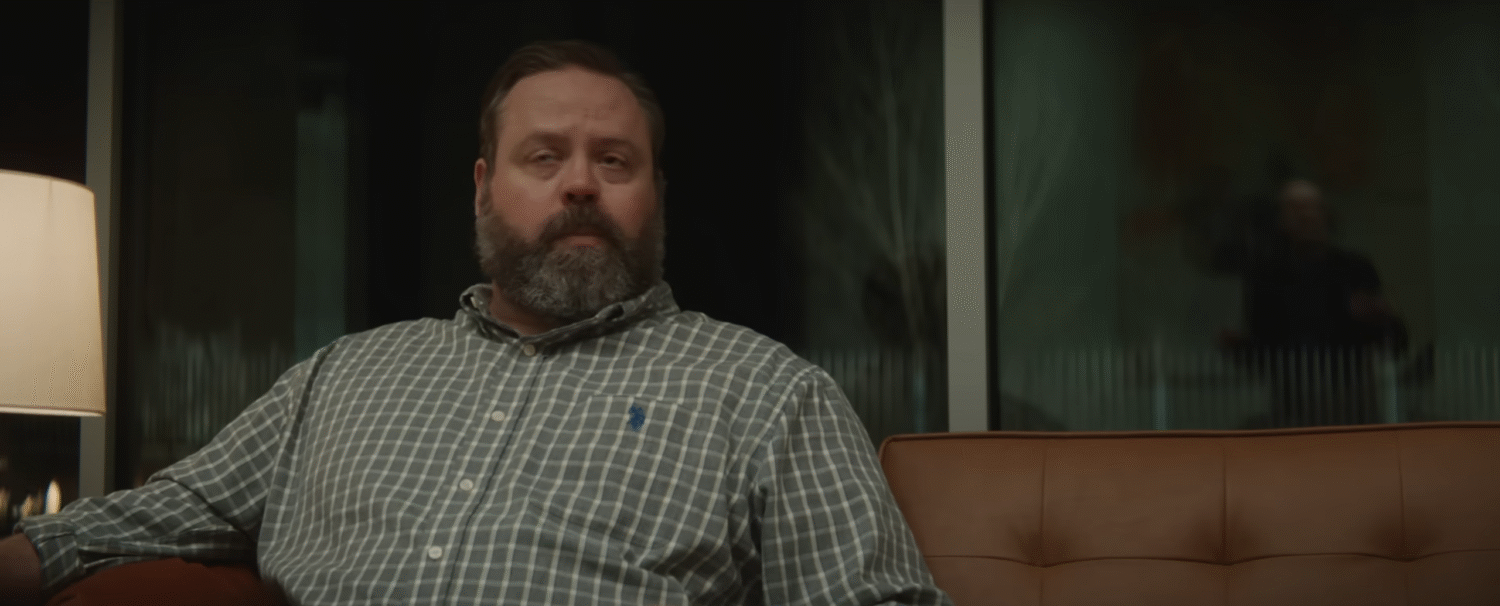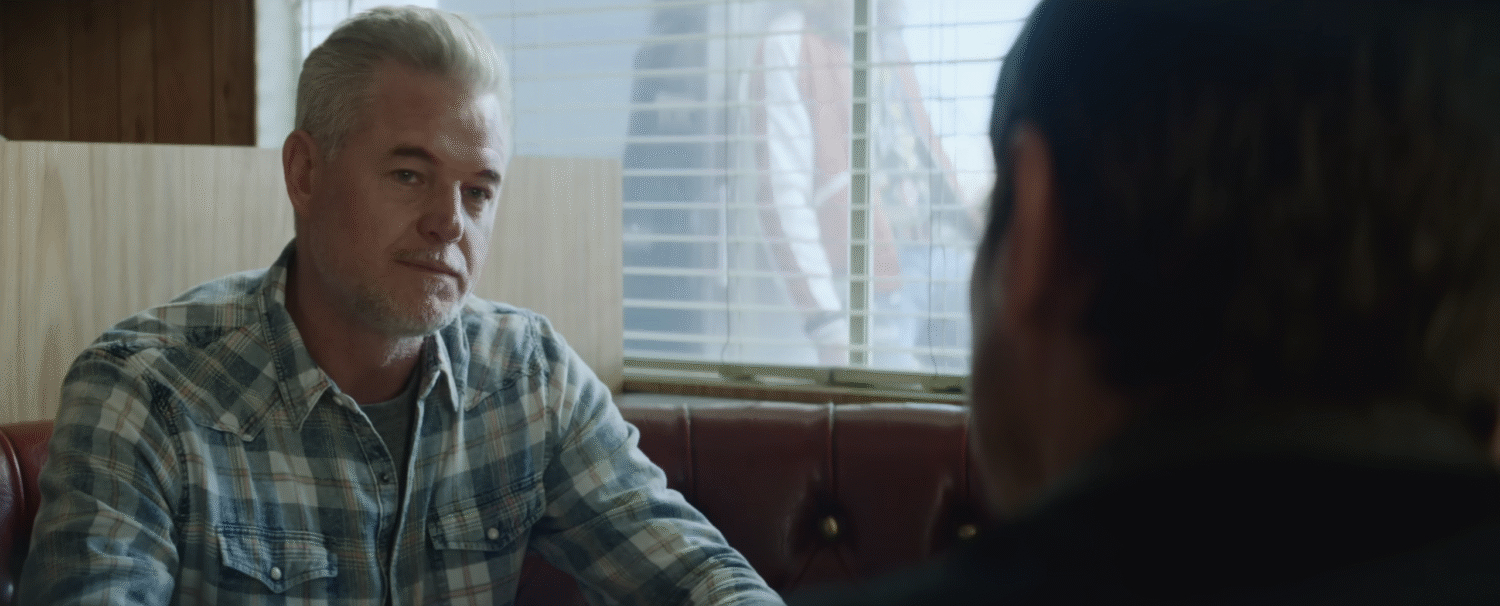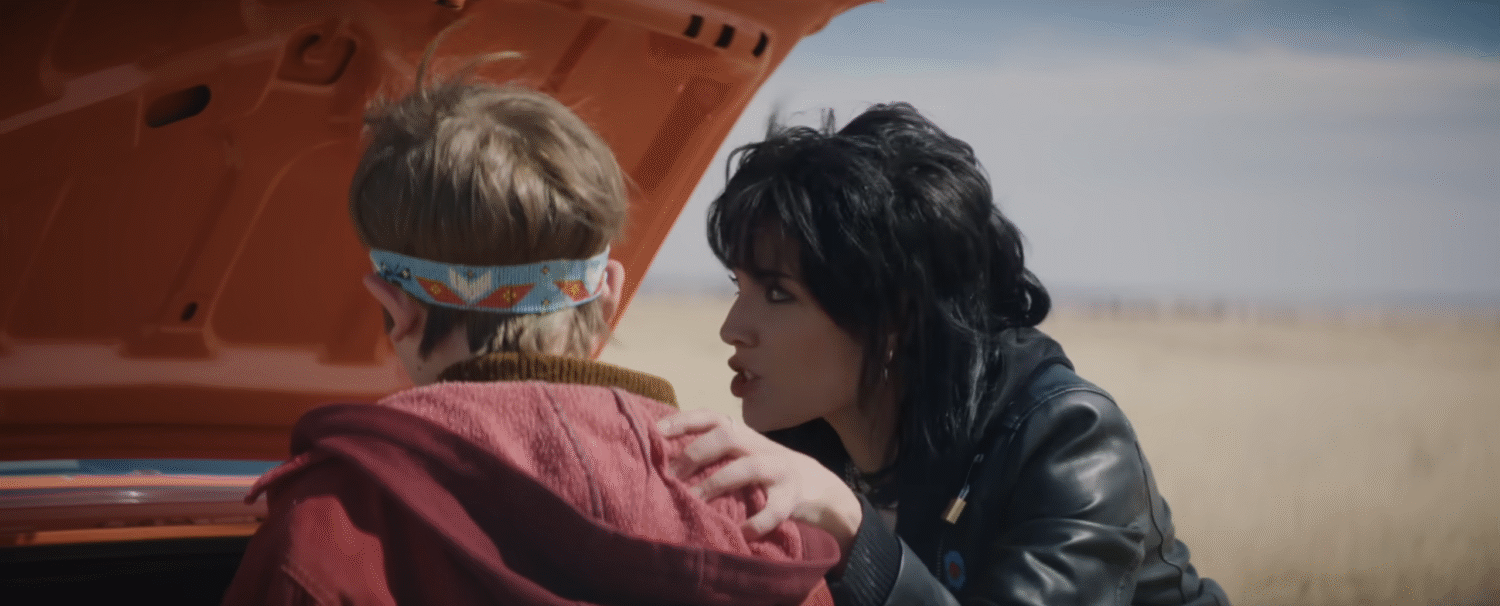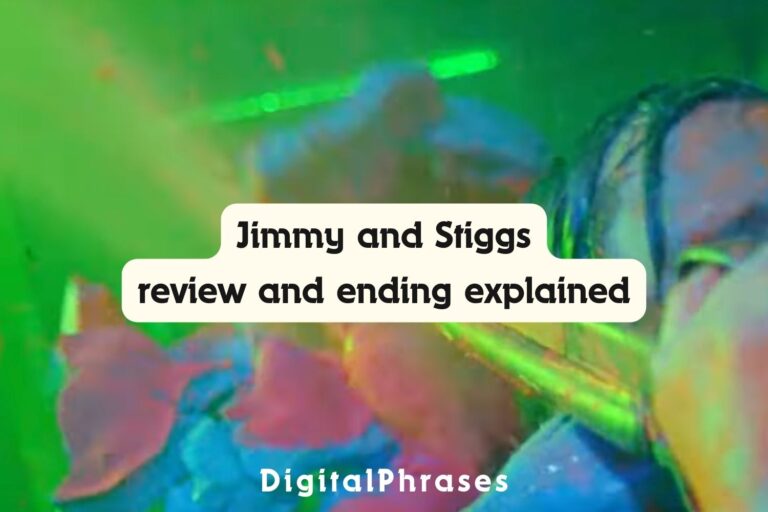Americana (2025) Review and Ending Explained
There’s something hypnotic about a film that wears its influences on its sleeve but still finds its own strange rhythm.
Americana, Tony Tost’s directorial debut, is one of those films that sneaks up on you. It’s a wild western mashup—equal parts Coen Brothers, Tarantino, and dusty South Dakota gothic—that manages to feel both familiar and completely unhinged. With Sydney Sweeney, Halsey, Paul Walter Hauser, and Simon Rex in the mix, you already know it’s going to get weird.
Story Recap, Synopsis, and Review
Okay, so let’s break this down. At its heart, Americana is about obsession, identity, and survival. But instead of one clean narrative, the film’s built as a five-part anthology of interconnected characters. Think Pulp Fiction if it had a dustier, bleaker, more rural cousin.
We kick things off with Cal Starr, a young boy who decides he’s the reincarnation of Sitting Bull after binging way too many TV westerns.
This is the kind of character that feels ripped out of a Coen Brothers’ script—his deadpan sincerity, his awkward obsession with Lakota culture, and his literal weaponization of childhood imagination (he kills his abusive dad with a bow and arrow) all hit that unsettling mix of dark comedy and genuine horror. Cal isn’t just comic relief—he’s a walking, talking metaphor for how America consumes and reinterprets history until it’s barely recognizable.

Then you’ve got Lefty Ledbetter (played by the amazing Paul Walter Hauser), a handyman who’s equal parts sweet, lonely, and slightly pathetic. He stumbles into this mess with Penny Jo Poplin (Sydney Sweeney), a stuttering waitress who dreams of Nashville and Dolly Parton glory. These two feel like they walked straight out of Robert Altman’s Nashville—their quirkiness isn’t just window dressing; it’s their way of surviving in a cruel world. Lefty clings to the idea of love like it’s oxygen, while Penny clings to her dream of singing, even though both goals feel hopeless against the backdrop of murder and greed circling around them.
On the darker side, we’ve got Dillon MacIntosh, Cal’s abusive father, and his partner Reggie. These guys are hired by Roy Lee Dean, a businessman with a fetishistic interest in Native American culture, to steal a Lakota ghost shirt from a rich collector. Here’s where the MacGuffin kicks in: the ghost shirt becomes the symbolic centerpiece of the film. Everyone wants it—some for money, some for power, and some for cultural reclamation.

The robbery itself plays like a classic crime-gone-wrong sequence straight out of Tarantino or early Coen Brothers. Dillon and Reggie kill way more people than planned, Dillon kills Reggie in a fit of paranoia, and suddenly we’ve got a bloody ghost shirt bouncing around South Dakota like the briefcase in Pulp Fiction.
But here’s where the movie gets really interesting: the ghost shirt isn’t treated like sacred cinematic treasure (à la the Ark in Raiders of the Lost Ark). Instead, Tost seems to be poking at the ridiculousness of everyone projecting meaning onto a piece of fabric. The Native gang led by Ghost Eye Spears sees it as cultural reclamation, Mandy (Halsey’s character and Cal’s mom) sees it as her ticket to freedom, and Roy sees it as a collector’s prize. The shirt is less about what it is and more about what everyone needs it to be—identity, survival, validation.
And then there’s Mandy. Honestly, Halsey steals this film. She’s a runaway from a cult-like family, stuck with an abusive boyfriend, and constantly oscillating between victimhood and rebellion. Her arc is messy, brutal, and ultimately the film’s emotional anchor. While Penny and Lefty give us heart and humor, Mandy gives us raw survival instinct. She hits Dillon with a hammer, takes off with the shirt, and drags her kid into a storm of violence she barely controls.
The film eventually corrals everyone—Cal, Mandy, Penny, Lefty, Ghost Eye, and Roy—at Mandy’s father’s ranch. It’s a pressure cooker climax: gunfire, arrows, betrayals, and a bloody showdown that feels like an old-school western siege updated with modern grit.
Here’s what I love: Tost isn’t afraid to layer satire onto brutality. When Ghost Eye’s gang uses bows and arrows against shotguns, it’s both absurd and oddly poetic. It’s a nod to Hollywood’s mythmaking about cowboys vs. Indians, but with enough bite to make us question who’s performing history and who’s rewriting it.

Cultural Layers
This is where Americana earns its title. The film is obsessed with how America consumes culture—whether it’s Cal mimicking Sitting Bull, Roy fetishizing Native artifacts, or Penny idolizing Dolly Parton as her ticket out of obscurity. The ghost shirt doesn’t just unify the plot—it’s the connective tissue of the film’s thesis: identity in America is always stolen, borrowed, or reinvented.
Think about it. Cal believes he is Sitting Bull reincarnated. That’s cultural appropriation dialed up to eleven—but the film makes it funny and tragic at the same time. Penny can’t get through a sentence without stuttering, yet she wants to sing like Dolly, the voice of Appalachia. Mandy’s family plays pioneer cosplay, dressing like Little House on the Prairie rejects while running their farm like a cult. And Ghost Eye’s gang, self-described as “the Black Panthers of Native Americans,” are both reclaiming and parodying the cultural narratives that white America shoved onto them.
Tost clearly knows his influences. You can feel Sugarland Express in the road sequences, Blood Simple in the paranoia and killings, and Altman’s Nashville in the way seemingly disconnected characters weave into one another’s fates. But instead of just mimicking, Americana uses these styles to highlight how American culture itself is a collage of borrowed voices, stitched together with violence and irony.
Ending Explained
By the time the dust settles, the body count is high, the ghost shirt has changed hands a dozen times, and we’re left with a bittersweet resolution. Roy Lee Dean gets killed, Ghost Eye retrieves the shirt, Mandy barely survives, Lefty dies confessing his love for Penny, and Penny herself escapes with some money and her dream still intact (though shattered by grief).
The most poignant thread, though, is Cal. He delivers the ghost shirt back to Ghost Eye, who thanks him but bluntly reminds him he’s not truly Lakota. It’s the film’s way of underlining the absurdity of his “reincarnation” fantasy while also acknowledging that his yearning for belonging is very real. Cal doesn’t get acceptance, but he does get closure—returning to his mom Mandy in town, reunited in a messy but undeniably human way.
Penny, meanwhile, drives off toward Nashville, carrying both hope and heartbreak. Her dream isn’t dead, but it’s no longer naïve. And that’s kind of the movie in a nutshell: dreams in America cost blood, and survival is rarely clean.
What’s brilliant here is that the ending doesn’t moralize. The ghost shirt goes back to Native hands, but Ghost Eye shuts out Cal. Penny gets her chance at freedom, but only after loss. Mandy finds her son again, but only after losing her stability. Nobody “wins” in the Hollywood sense. Instead, the ending mirrors the film’s larger point: America’s stories are messy, violent, and contradictory.
Final Thoughts
Americana isn’t flawless. The exposition dump about the ghost shirt drags, some storylines don’t fully pay off, and the final act gets chaotic. But that’s also part of its charm. This isn’t a film that ties everything up with a bow—it’s a film about how messy storytelling itself can be when it’s reflecting a messy nation.
For cinephiles, there’s so much to chew on here: the structural homage to Pulp Fiction, the Coen Brothers’ flavor of irony and absurdity, the Altman-esque sprawl of characters, the Tarantino love of genre remixing. But beyond the stylistic references, Americana forces us to confront the question: what does it mean to be American when every cultural identity we claim is borrowed, stolen, or remixed?
That’s what makes this film stick. It’s not just a quirky western—it’s a mirror. And depending on where you stand, you’ll either laugh, cringe, or recognize a bit of yourself in the chaos.






